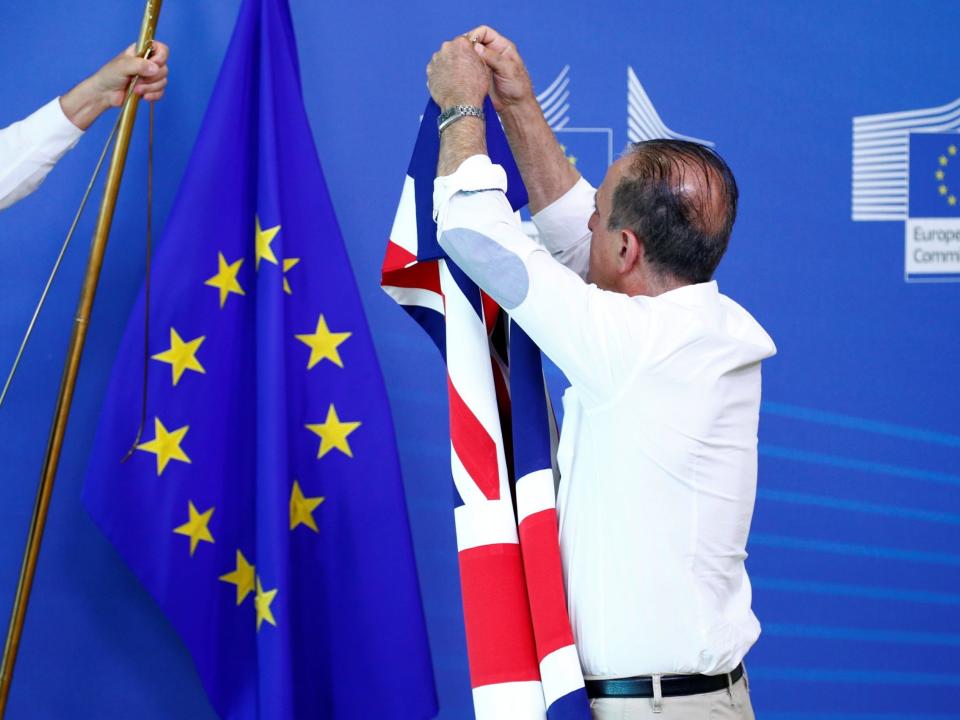The end of the Greek bailout is a reminder of the enormous tests the EU faces – with or without Britain
The great Greek bailout is finally at an end. In nearly a decade, the country received more than €300bn (£270bn) from a plan agreed by the EU, the European Central Bank and the International Monetary Fund – the “Troika” – in return for a programme of economic austerity that caused significant domestic strife.
Having been hit hard by the global financial crash of 2008 and 2009, Greece came as close as any member nation has of crashing out of the eurozone. Structural weaknesses in the Greek economy – allied to a lack of candour from previous governments about the strength of tax revenues (and thus the reality of budget deficits) in the years before the crash – left the country teetering on the edge. Some maintain it had been brought there by eurozone membership, but its membership was also sufficient to stir the Troika into action and to ensure that Greece was saved.
Salvation has come at a cost however. In the eight years to 2016, a remarkable 400,000 people – most of them young – decided to cut their losses and seek a better life elsewhere. Given that unemployment peaked at 28 per cent in 2013 (and for those under 25 reached a staggering 58 per cent), such an exodus is hardly surprising. Still, the consequence is that Greece’s demography has been fundamentally altered: a generation of working age people has been lost in the space of a decade. Some may return, but the economic outlook is hardly rosy still, despite the progress made towards balancing Greece’s books.
After all, while the bailouts are now at an end, the remaining mountain of Greek debt makes a molehill of Olympus. It will take decades to repay, and lenders will keep close tabs on every utterance of Greece’s finance minister; for those within the country who believe that the bailout process left Greece as a kind of economic eunuch, singing along to a tune dictated by the EU’s financiers, the years of repayment ahead offer little respite from the sense of lost independence.
For individuals – faced with only a modest improvement in the jobs market, high taxes and the legacy of a decade in which public spending has been slashed – the end of the bailout will change little. What’s more, with global economic growth still uncertain, there will be residual fear that it would not take much for Greece to be forced once again to bring out the begging bowl.
For the EU, and particularly for the eurozone countries, the Greek bailout (and those lesser ones which were required by other countries, including Ireland and Portugal) was a necessary evil and ultimately a success, at least insofar as preventing the contagion which at one stage appeared set to destroy the euro, especially when Italy seemed on the brink of requiring similar assistance. Lessons about the need for improved financial reporting have, on the face of it, been learnt.
Some policymakers in Brussels have also been convinced that the Greek crisis demonstrated the need for greater economic harmonisation, if the structural imbalances which beset both the eurozone and the EU as a whole for years are to be avoided in the future.
This plainly raises important questions about the EU’s future, questions that have indeed long divided opinion between those committed to the idea of “ever closer union” between member states, and others for whom such a notion is anathema to the independence of national parliaments. Even though the UK’s decision not to join the euro put it on the fringes of this debate from an economic point of view, it is at the heart of the broader argument between eurosceptics who believe that the EU will inevitably – in the end – become a United States of Europe, and those who contend that the European Union can reform in a way that does not reduce the power of national governments.
In the UK, all attention is, of course, on Brexit: the potential permutations, the possibility of its reversal, and the challenges the country will face in the event of ultimate withdrawal. The end of the Greek bailout is a reminder, however, that for the EU as a whole enormous tests remain with or without Britain: both as a consequence of the economic uncertainties that continue to plague much of the continent; and as a result of the ongoing need to define the European Union’s status and purpose to the satisfaction of its members, and their own populations.

 Yahoo News
Yahoo News 

